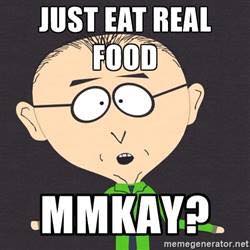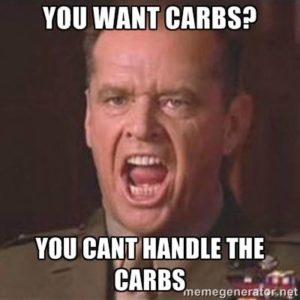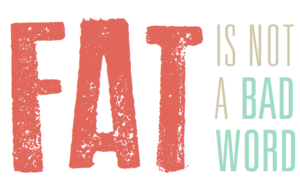Have you read this post ???
Because if you haven’t then none of what I’m
about to tell you matters
I want to start this off by saying not for one
second am I saying that calories don’t matter
because they 100% do. If you eat too many
calories you will not get any results (unless
of course you’re trying to gain weight)
What I am saying is the method of counting
calories doesn’t work for everyone
Whether you’re just starting out and it feels
like too much
Or you’ve been doing this a while and just
don’t like the idea of counting calories because
it stresses you out
There is another way, because you absolutely need
to control how much food you’re having if you want
to get results
There are a few things to cover so lets dive right in
Eat as much healthy food as you want
Eat at as much bad food as you want just
count calories…
Make sure you hit your macros
Eat carbs
Don’t eat carbs
Eat fats
Don’t eat fats
Paleo, Atkins, weight watchers…..Ahhhhhhhhhhh
hhh
See where I’m going with this?
There’s so much nutrition advice out there where
the hell does someone start?
Well in my humble and correct opinion it’s with
how much food you eat AND with food quality
You can count calories/macros all you want,
but if your food quality is shit your health
will plummet
Likewise you can fix food quality and eat too
much food and still not get any results
People always try to prioritise one over the
other……you need both, we’re gonna start
with vvvvvvv
Food Quality

Low quality food = shitty health = rebound weight gain
So what the hell do I mean? The quality of food
just means how many nutrients/vitamins are
in it and what it’s made up of, simples
So here’s how you fix it:
“Eat 1 Ingredient Foods As Often As Possible”
Think about this…..
Meat(steak, lean beef, turkey, chicken etc…)
Fish (tuna, salmon, mackerel, prawns, cod etc….)
Eggs/Egg Whites
Veggies/fruit/nuts/avocado/
The only ingredient is the actual food
That’s a good sign of quality
So if you pick up some food in a supermarket,
look at the ingredients and there’s 85 different
ones [some of which don’t even look like words]
then it’s prob not an ideal option to consume
regularly
Now that doesn’t mean you can’t have those foods,
it just means they should be the minority and not
the majority
Anyone who follows me, particularly on snapchat
https://www.snapchat.com/
knows I love a good pick & mix & I wouldn’t stop
having them for anything or anyone, you just
have to be smart about it
If you act like a kid in Christmas morning every
time then you’re flushing your results down the
crapper
So here’s what ya need to do:
80–90% of the time eat good quality foods
It doesn’t have to be 1 ingredient foods but
they should make up the majority & other foods
should have as few ingredients as possible (yogurt,
dark chocolate, protein powder etc…)
10% of the time have the foods you truly love.
That’s it!!!!! Do that and you will be off to a
flying start
The only way you can go wrong is if 10% turns
into 40%, show some restraint it’s not Christmas
morning every time ya eat junk food
OBEY YOUR THIRST

This falls into quality as well
Sprite had it right, apart from their unhealthy
product, but the slogan is good
Water is unavoidable for everybody in life
It doesn’t matter what your goal is, you need
water and lots of it
What Does It Do?
Your body is mostly water so it helps with a lot
of bodily functions
Hunger is very often mistaken for thirst as they
feel very similar. Keeping your water up can
help keep you feeling full for longer
Having skin trouble? Water can clear that up
If you don’t drink it you will die
More energy, better mood, better performance,
fat loss and even more
What more do you need?
Where do I get it?
Water water water
You do have other options as straight water
can get boring
First up is adding fruit to your water. It can be
lime, lemon, berries, mint, watermelon, citrus
fruits or whatever you want
After that you have a few options, BUT they
do not count towards your intake.
They are just to help you break the taste of water
if you need too
Green tea, herbal teas, vit hits
^^^^these are all additions give you a break
from water. They do not replace water in any
way shape or form (my mam used to always
say that)
How Much Do I Need?
This is simple, 30–40ml per kg of body weight
This is a baseline, if you’re active you need more.
Anything Else?
Yup one last thing, there are other things you can
drink too. Again they don’t count towards your
water intake & can become addictive easily so ya
gotta be careful
Coffee, Monster Zero (not to be confused with full
monster), other zero cal drinks like diet drinks,
lucozade zero etc…..
Yes I’m aware that they have artificial sweeteners
and guess what? There is actually no solid
research to prove that they cause any health
damage long term
The research is very conflicting & inconclusive
at best
Now like anything if you go nuts and have
too much chances are you’ll do damage
But if you sort your food quality 90% of the
time then the majority of your intake will be
high quality and you’ll be fine
You should at any stage be able to go without
coffee/monster & other caffeine drinks and be
completely fine
Otherwise you’re an addict
Portion Control
Like I said at the start, we need food quality &
to control how much food you eat
That doesn’t mean you have to count calories
There’s more than one way to skin a cat
^^^^stupid expression, why would you
skin a cat?
Anyways, so here’s how we’ll do it
PROTEIN

So Protein is the first of the macros that we
will cover
Don’t worry it is in no way as complicated as
people think
Macros is short for macro-nutrients and the 3
main ones are Proteins, Carbs & Fats
Protein is first up because it is the most
important of the 3 for your results….
What does it do?
Protein helps build lean muscle or stop muscle
loss if you’re trying to lose weight
YES ladies you do want this, no you won’t get
big and bulky unless you’re taking steroids. If
that’s the case then don’t be selfish and share
It also helps you feel full for longer, fights off
hunger, helps you recover from workouts
quicker and lots lots more
Where do I get it?
This is so simple;
Lean meat, fish, fowl, eggs, egg whites, dairy &
protein shakes are all good sources
Be careful of foods that claim to be “high
protein sources” when really they’re not
(nuts & beans). Not that those foods are bad
for you its just they’re not as high in
protein as they claim
How much do I need?
There’s 2 answers to this one & I MASSIVELY
(get it, massively & its capitalised? I’m so funny)
believe that everyone should start with the
first
Men – have 2 palm sized portions with every meal
(this will be about 40-60g)
Women – have 2 Palm sized portions
at every meal (this will be about 30-40g)
Snacks – you can use protein bars(sparingly),
protein shakes or 0% fat yogurt as snacks if
you’d like to boost it even more
I want to be clear that this is an awesome
starting point and will get you very far,
but there’s one more thing I think everyone
should do at least once
And that’s answer number 2
Count Your Grams of Protein
The majority of research points to having .7
to 1g of protein per lb of body weight
If you’re leaner have the higher end, if you’re
heavier have the lower end
That said it really depends on your goals,
weight & body fat but those are good starting
points
Spread that out throughout the day to help keep
hunger at bay & keep your body fuelled up if you
prefer, but total amount matters most
Count every single gram of protein you have for
the day and see how close or far away you are
from that goal
Then adjust as you need to
You can track in a paper journal or use an app like
myfitnesspal, whichever you prefer
|
Protein Chart |
||
|
Food Timing |
Eaten with every meal |
|
|
Food Amount |
2 serving for ladies (size of palm) 2 servings for men |
|
|
Examples |
DO IT! |
PASS IT UP! |
| · Lean meats such as beef, chicken, turkey, venison, duck
· Fish such as salmon, tuna, cod, clams, lobster, mussels, mackerel, trout · Eggs · Dairy such as cottage cheese, 0% fat yogurt* · Protein supplements such as whey *if you can tolerate it |
· Lunch meats, hot dogs, poor quality sausages or rashers, any other processed meats | |
Carbs

But Atkins said they make you fat?
And that I should dramatically reduce my intake
or I’ll never get results
The truth is research has shown as long as
you control how much you eat & get protein
right there’s no real difference between high
carb/low fat & low carb/high fat
^^^^read that again
Now let me completely contradict myself.
If you have a lot of weight to lose then from
my experience your body won’t handle carbs as
well as someone who’s more active & leaner
Experiment yourself
What do they do?
Carbs give you energy. They are what fuel your
workouts, particularly intense ones
Low carb means less intense workouts which
could lead to less results. They are also the
preferred fuel of your nervous system(your brain),
so yeah kind of important
Where do I get them?
Potatoes(all kinds), rice, oats, fruits, veggies,
grains & tons of processed foods are all carbs
Obviously processed is less than ideal.
Grains is very individual, some people handle
them well and others don’t
How much do I need?
There’s 2 separate answers that you need for
this one. First is for non starchy carbs
non starchy veggies(broccoli, spinach, salad etc..)
low sugar fruits (berries)
Men — 2 fist sized portions of veggies
Women — 1 fist sized portion of veggies at
every meal
^^^^that part is a minimum & more is better.
Greens, salads etc.. for the win here.
Now for part 2 which applies to starchy carbs
Potatoes, rice, oats, grains, starchy fruits etc…
Men – 1–2 cupped handfuls per meal (40-60g)
Women – 1 cupped handful (20-30g)
^^^^again it’s a starting point
If you have a long way to go then you might keep
the very starchy stuff (oats, potatoes, rice
etc…) for before & after workouts & first thing
in the morning on training days
Like I said this is not essential as your total
amount of food will matter most, but some
people will find they feel better this way
Also given that this method can be inaccurate
if you’re not strict with following the portion
sizes……then basing carbs around activity will
help keep you in check
The rest of the meals without starchy carbs
use low sugar fruits & veggies & some good
fats (that’s coming below)
On non workout days you can cut carbs back
a little & up fats instead if you’d like….again not
essential
As with every tip your individual goals may
alter these recommendations, but it’s a good
starting point
|
Carbohydrate Chart |
||
| Carb Type | Examples |
When To Eat + Serving Size |
|
Fibre-rich |
· Veggies(broccoli, kale, spinach, carrots, tomatoes, celery, cucumber, zucchini, beets, lettuce, collards, radish, mushrooms, parsley, peppers, sea vegetables, zucchini, onion, chard, watercress etc..)
· Peas · Fruits such as berries(all types), melon, coconut, apples, grapefruit etc… |
Eat often, and any time of the day(especially veggies) |
|
Whole Food Starchy |
· Yams
· Pumpkin · Sweet Potatoes · White Potatoes · Quinoa · 100% Oats · Wild Rice · Basmati Rice |
If very active eat more than once on workout days
Portion guide is the size of your fist |
|
Refined Sugary |
· Desserts
· Fruit juice · Processed foods · Fizzy drinks · Dried fruits · Most commercial nutrition bars · Sweets · Crisps · You should know these ones. |
Eat rarely and always after a workout the rare times you do. |
Fats

Let’s get rid of this myth now
Fats are not bad for you, that myth was caused
by one researcher who played with the results
of his study so that it said what he wanted
Then the whole situation rapidly snow balled
They are essential for you & like protein if you
don’t have them you die
There are a few different types of fats but
to be honest you don’t need to know too
much detail on that
As long as you vary your sources that you
get them from you’ll be just fine
And minimise trans fats from junk food and
you’ll do great
What does it do?
It helps your body absorb vitamins &
nutrients. Helps regulate your hormones &
also helps with brain function….you know
so you’re not stupid
Where do I get it?
Eggs, fish, nuts, nut butters, coconut oil,
grass fed butter, avocado, omega 3 fish oil
Easy
How much do I need?
IMPORTANT: Fats are the highest in calories of
the 3 macros, so make sure a thumb size is an
actual thumb size
Men – 2 thumb size portions per meal (20-25g)
Women – 1 thumb size portion (7-12g)
^^^this is a starting point and it depends
on the fat, but for nuts etc this should good.
Avocado you can have a little more
Be careful with nuts & nut butter and make
sure the portion is right as the calories can
escalate quickly
|
Fat Chart |
||
|
Food Timing + Serving Size |
Ladies serving is the size of your thumb, 2 servings for men *Using oils mentioned below to cook your Post Workout Meal is of course ok. |
|
|
Examples |
DO IT! |
PASS IT UP! |
| · Animal fats(eggs, dairy, meat, fish)
· Coconut oil · Grass fed unsalted butter · Rashers(97% pork or higher) · Unsalted nuts(walnuts, macadamias, almonds, cashews, brazil nuts, hazelnuts etc….) · Seeds(pumpkin, sunflower, flax, chia) · Avocado · Extra virgin olive oil · Fish Oil(omega 3) |
· Canola oil, hydrogenated oils, imitation butters(if it’s not butter what the hell is it?), vegetable oil | |
NUTRITION SUMMARY
If all of this seems overwhelming at first then
just start with food quality and hydration for
2 weeks
Then get specific on protein once you have that
down
And just keep adding little pieces at a time
Here’s a sample layout you could use
Week 1: Healthy breakfast every day & hit water
target every day
Week 2: Maintain week 1 habits and also fix dinner
every day
Week 3: Maintain weeks 1 & 2 habits & now cook
double portions of dinner every day and use it for lunch
Week 4: Maintain weeks 1-3 habits & now fix
your snacks
4 weeks of changes that won’t feel overwhelming
in any way at all
But by the end of the 4 weeks you will literally have
changed your whole nutrition and your life
I hope this helped you get a better grip on your
nutrition & how you need to eat to get results
I will be doing a post on how to count calories
as well
You may not ever want to do this, but for those
who do or for those who want to be more accurate
we will cover it
In the meantime you can follow me here vvvvvv




